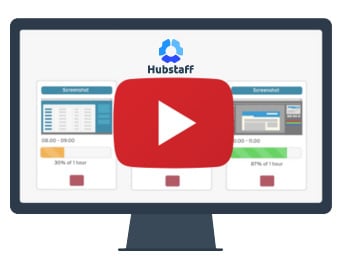Cloud Architect Interview Questions & Preparation

Setting up a cloud infrastructure is no small task, and it takes the right candidate to do the job correctly. You need someone who understands your company's needs and the options available in the cloud. This makes the candidate search and tech interview processes even more important.
There are several ways you can assess these skills throughout the interview process. The steps outlined here might seem like a lot of work, but putting in the effort up front will pay off in the long run when you hire the best candidate for your team.
We've been able to help Hubstaff users streamline the management of their businesses with our software, but many still have the problem of finding great people. This directory can also help them find great freelancers to work on their teams.
Cloud Architect Interviews
Start by evaluating each candidate's technical skills as listed on their resume or online profile. Look for mentions of terms like cloud environments, cloud technologies, cloud architecture, hybrid cloud, big data, infrastructure as a service, cloud computing, SaaS, hosted stack/architecture, and cloud infrastructure. The more experience a candidate has in these areas, the better prepared he or she will be to hit the ground running on your team.
Once you've selected your candidates for an interview, it's time to focus on what you want to accomplish during that interview. This is an opportunity to focus less on the technical aspects of the job and more on the candidate's ability to follow processes, keep to deadlines, and work independently.

Ask candidates to provide examples of projects that involved closely following process documents, performing at a high level, and making improvements to systems. They should be able to provide at least one example for each, though the same project might be used for multiple scenarios.
Cloud Architect Evaluations
Team and organizational culture are important, even for a remote position. You might never get to meet the employee in person, but you will be interacting with him or her on a daily basis and need to find someone who can thrive in whatever environment you team has set up.
Technical Evaluation
The interview should also include a technical evaluation. The most common way to do a tech interview is to have a candidate complete a small project within a given timeframe and send the results to your company's technical team for review.
The assignment should be in line with something the candidates would actually do for your company in order to truly gauge whether their skills are up to par. Make sure to set a specific deadline and be clear about when the candidate will receive the results back.

For an on-site database position, you may choose to meet with the candidate in a more informal setting to get a better sense of their personality. Interviews are very formal by nature and even the most seasoned candidates will be a little stiff and hesitant to let their true personalities show through.
How to Know if a Freelance Cloud Architect is Right For you?
Finally, ask the candidate to provide references that you can use to validate technical and non-technical skills. These could include previous supervisors or clients. Any candidate should be able to produce at least 2-3 references who can speak to their previous work experience. Talking with these references adds extra time to the hiring process, but that time spent is well worth it for the insight you can gain.
An interview also an opportunity for a candidate to assess your company and whether it will be a good fit for them. Make sure that you are honest and open throughout the hiring process to avoid any unpleasant surprises after the fact.
Beyond salary or an hourly rate, a database admin or infrastructure specialist should feel a sense of pride in their work and be proud to add it to their portfolio of projects when it comes time to apply for the next position. If you've done everything correctly up to this point, you should feel confident about making an offer to your desired candidate at the end of the interview process.
Over 8,000 remote teams trust Hubstaff
Do you have a remote-based business? If so, you understand the challenges that come with tracking billable hours, understanding what your team is working on, timezone challenges, and setting priorities in a remote environment. Hubstaff can help.
Hubstaff makes managing teams easy
Hubstaff offers time tracking with screenshots, activity levels, automatic payroll, 30+ integrations, team analytics, and more.
14 Day free trial
All features included
Try Hubstaff
